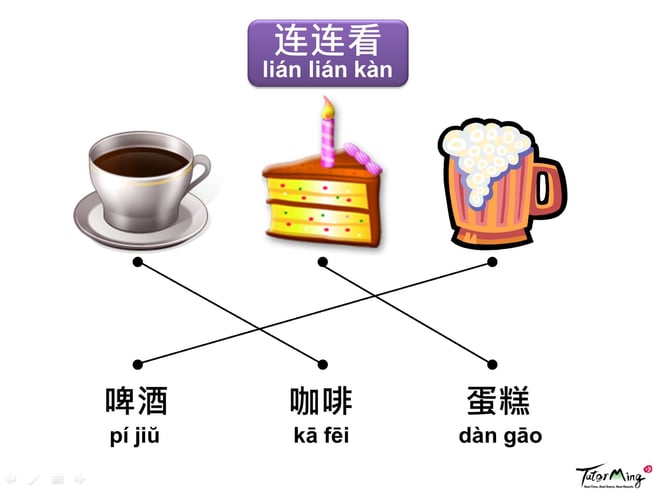My name is Efrain, and this is my weekly column on my journey to becoming fluent in Chinese with TutorABC Chinese. You can check out why I want to learn Chinese in my introduction here.
吃的 (chī de) is food in Chinese, and who doesn’t love food? Food is a common ground across all cultures, bringing people from all over the world together. Of course people have different preferences, but luckily for me, the San Francisco Bay Area (where I live) is very diverse and has no shortage of authentic cuisines. When I go to China however, I would like to be able to order some local dishes in Chinese (I don’t think they have Panda Express there) as well as my favorite foods. So, this week I was fortunate enough to learn one of everyone’s favorite subjects: food!
想+要 (Xiǎng Yào)? "Want + Want?"
Building off of last week’s lesson, I was able to make request a few off of the last sentence structure using the word 要 (yào), to tell people where I was going. I also learned the difference between要 (yào), a statement/demand meaning "to want," and 想 (xiǎng), a request using "want." My consultant informed me that it is better to combine the two when asking someone, or even requesting food. 想要 (xiǎng yào) is far more polite. The interaction was very informative and it provided me with a few cultural tips.
Culture Lesson! What Not To Do: Never say “你要饭吗 (Nǐ Yào Fàn Ma)” to anyone

You would think the phrase “you want rice” in any part of Asia would be fairly common. Surprisingly even Google Translate knows better. (Try it!) Apparently you are not asking if they want rice, you would be calling the person a beggar? Supposedly, it is common for beggars in Asian countries to hold bowls, similar to those used for rice. Instead, use 你想要饭吗 (nǐ xiǎng yào fàn ma), which is an acceptable form of asking the question. Another thing to know when eating rice is to never tap on your bowl with your chopsticks, as that is what beggars do to attract attention. It is also seen as very impolite to do so.
Related: 8 Major Cuisine Types In China
Picking up new vocabulary has allowed me learn some of my favorite foods. In addition to that, I was able to differentiate between foods I dislike, like, and love. I will be sure to cover both in the following order. 我不喜欢咖啡 (wǒ bù xǐ huān kā fēi). I do not like coffee. (It keeps me too jittery so I tend to shy away from it.) 我喜欢披萨 (wǒ xǐ huān pī sà). I like pizza (but then again who doesn’t? Plus, the word is super easy to remember being almost identical to the same pronunciation in English.) Lastly, 我爱啤酒 (wǒ ai pí jiǔ) is my guilty pleasure. It means "I love beer."
Related: 5 Tips About Chinese Drinking Culture
Review

This lesson made me very hungry. Apart from that, I certainly enjoyed it and did a little practice matching the correct image to the text below (like in the image above). I did not experience any challenges this week in learning the material, and I got to expand my vocabulary on various food-related words. After the class was over, I even had time to ask how to say my favorite Chinese dish, 宫保鸡丁 (gōng bǎo jī dīng), also known as Kung Pao Chicken.
Thanks for reading my column! Tell us some of your favorite foods using the grammar and vocabulary in the comments below! Tune in next week to see what I learn next.
Vocabulary List
|
吃的
|
Chī De
|
Food |
|
咖啡
|
Kā Fēi
|
Coffee
|
|
牛奶
|
Niú Nǎi
|
Milk
|
|
果汁
|
Guǒ Zhī
|
Juice
|
|
啤酒
|
Pí Jiǔ
|
Beer
|
|
披萨
|
Pī Sà
|
Pizza
|
|
意大利面
|
Yì Dà Lì Miàn
|
Spaghetti
|
|
三明治
|
Sān Míng Zhì
|
Sandwhich
|
|
饭
|
Fàn
|
Rice
|
|
水果
|
Shuǐ Guǒ
|
Fruit
|
|
蛋糕
|
Dàn Gāo
|
Cake
|
|
想要
|
Xiǎng yào
|
Want (More Polite)
|
|
喜欢
|
Xǐ Huān
|
Like
|
|
爱
|
Ài
|
Love
|
Like this post? Join uS to learn more!
